Marking 20 years of APEC successes
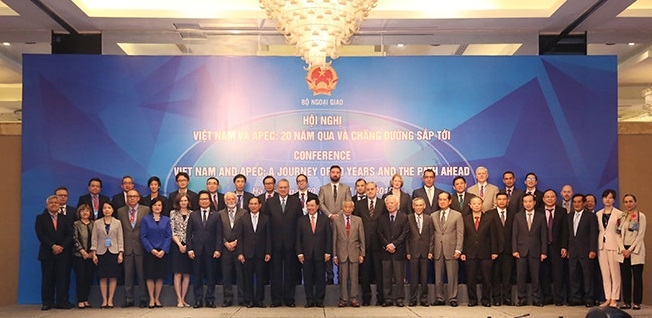 |
| Marking 20 years of APEC successes |
Whilst making his TV show, The Airport Economist, Tim Harcourt visited over 60 economies during the past seven years. One country in particular that has always stood out to him is the enchanting land of Vietnam, one of the emerging ‘second generation’ tiger economies of Asia.
Vietnam, with a young and vibrant population, is the latest poster child for attracting foreign direct investment (FDI), and has been developing the much needed infrastructure that is required to get the economy moving.
Harcourt, who is also an economist, told VIR that Vietnam is considered a ‘transition tiger’ economy, moving from a planned economy to one that is more open and market orientated. The economy has grown at an annual average rate of above 6 per cent over the past decade. In addition to strong economic growth, inflation and unemployment have both remained at a low level.
“Vietnam has positively changed itself thanks to joining a number of global forums, including the Asia-Pacific Economic Cooperation (APEC), from which Vietnam has been greatly benefiting, in terms of trade, investment, and GDP growth as a whole,” he said.
Rendezvous of investment and business
Former Deputy Prime Minister Vu Khoan said at last week’s conference marking 20 years of Vietnam’s APEC membership that one of the biggest benefits that Vietnam has received from APEC membership are the huge opportunities in attracting investment and expanding trade.
“Without APEC, Vietnam’s economy would not be able to develop as it is doing now,” Khoan stressed. “FDI and trade in Vietnam have significantly changed.”
In 2006, when Vietnam hosted APEC’s meetings and events for the first time, APEC was also the largest foreign investor in the country, accounting for 62.7 per cent of total FDI. Specifically, 10 out of 14 nations and territories investing the most (over $1 billion each) were from APEC, at $39.5 billion.
At the time, Vietnam’s exports to APEC economies were 72.8 per cent of the country’s total export turnover. Along with that, APEC was also Vietnam’s largest importing market, with a total import turnover of $25.3 billion, making up 79.2 per cent of total imports.
In the 12 years since Vietnam first hosted APEC’s meetings and events, trade and investment ties with APEC economies have soared. Vietnam is moving from strength to strength in becoming a more attractive investment and business market, while APEC is enjoying strong growth.
The investment from APEC economies into Vietnam has also increased significantly, currently accounting for 83.68 per cent of total foreign-invested projects and 65.9 per cent or $222.62 billion of total registered capital of $337.8 billion (see graph on the front page).
According to Vietnam’s Ministry of Foreign Affairs (MoFA), APEC consists of 21 member economies which make up 59 per cent of the global population and account for 50 per cent of the world’s area. Additionally, APEC members account for more than 50 per cent of global GDP and 57 per cent of global trade. APEC is currently home to many leading partners of Vietnam, including nine strategic partners (Australia, Russia, China, Japan, South Korea, Indonesia, the Philippines, Thailand, and Singapore); and five comprehensive partners (the US, New Zealand, Canada, Malaysia, and Chile).
APEC’s members account for about 78 per cent of Vietnam’s FDI, 75 per cent of trade, 79 per cent of foreign visitors, and 38 per cent of official development assistance. Thirteen out of 16 free trade agreements (FTAs) that Vietnam has signed or is negotiating are with APEC members.
Seven APEC economies make up the biggest export markets of Vietnam, including the US, China, Japan, South Korea, Hong Kong, Malaysia, and Singapore.
Many foreign businesses have witnessed strong development between APEC and Vietnam over the past 20 years, and have in turn started to develop strong ties in the country themselves. For example, US-backed Cargill Vietnam was established in 1995, and has become the leader in producing animal feed and aquatics, with a range of products now made with modern technology.
Currently, the company has 12 animal feed mills across 10 cities and provinces nationwide, employing over 2,000 staff. In October, Cargill opened a new $28 million feed mill in the southern province of Binh Duong to better serve livestock farmers in southern Vietnam.
“Vietnam is a key animal nutrition market for us and we are committed to long-term and sustainable investment in the country,” Philippa Purser, group director of Cargill Feed and Nutrition, told VIR.
Meanwhile, Chang Bok Sang, chairman of CJ Vietnam Group, recently told VIR that the group will continue expanding operations in Vietnam across various sectors, including foodstuffs. In September, CJ inaugurated its $13.6 million animal feed mill in the central province of Binh Dinh, with the total annual capacity of 76,000 tonnes. This is CJ’s sixth animal feed mill in Vietnam.
“We find the best way to connect with the Vietnamese consumers and market is in long-term investments,” Chang said. “Mergers and acquisitions (M&A) are a way to reach it. That is why CJ always wants to co-operate with potential Vietnamese partners to do business together. CJ’s starting point is frozen food, but we will branch into dry food as well as other various types of food, too,” he said.
In former DPM Vu Khoan’s view, it is expected that a new wave of investment from APEC will be pumped into Vietnam in the near future.
In November last year, during the 2017 APEC Economic Leaders’ Week in Vietnam’s central city of Danang, foreign and Vietnamese businesses inked co-operation deals worth about $22 billion in numerous sectors. This is a remarkable increase compared to 2006, when Vietnam hosted APEC’s meetings and events for the first time. At the 2006 gathering, global CEOs and Vietnamese businesses signed business and investment deals that were worth $2 billion in total.
“In 2018, Vietnam has attracted significant investment capital from APEC funds in order to implement 14 projects to enhance the capacity for state officers, small- and medium-sized enterprises, women, labourers in the sector of commercial negotiation, digital skills, healthcare, and energy,” said a MoFA document on Vietnam’s participation in APEC. “This has turned Vietnam into a leading member to propose and implement initiatives this year.”
Under APEC’s Bogor Goals, by 2020 all members will see liberalisation in both trade and investment. This will be achieved through reduced trade barriers and the promotion of free flowing goods, services, and capital among APEC economies.
Currently the average regional import tariff has been reduced from the initial 17 per cent to 5.6 per cent.
Strong commitments
Prime Minister Nguyen Xuan Phuc has committed to building a more enabling government that is in favour of people, enterprises and investors. Vietnam will focus on developing healthcare and educational systems, bridging the income gap, and improving a social security network that protects vulnerable residential groups from negative shocks, he stated.
“The country will also develop a startup and innovative economy via supporting and creating favourable conditions to foster and realise startup initiatives,” PM Phuc said.
He called for the engagement of foreign investors in the process, as well as the establishment of more startup support funds and venture capital funds in Vietnam.
“Furthermore, Vietnam will also reform its tax policies in orientation towards improving the economy’s competitiveness, towards transparency, equality, and efficiency, in line with the high standards set by the Organization for Economic Co-operation and Development,” he stressed.
For Harcourt, he will come back to Vietnam many more times, and he highly values the government’s commitments and actions.
“There are bright lights ahead for Vietnam, not just in Ho Chi Minh City, but in Hanoi, Danang, and the countryside as well. Vietnam is opening up its economy but it has a lot of work to do in terms of improving corporate governance, business regulation, and the country’s investment in human capital,” he said.
“Economically, Vietnam is likely to make special efforts at APEC to showcase itself as a modern, open, trading nation,” Harcourt added.
| Milestones of Vietnam’s APEC membership - June 15, 1996: Vietnam officially applied to join APEC. - November 1996: The Politburo issued a resolution on expanding and enhancing the effectiveness of the country’s external economic relations for the 1996-2000 period, with a stress laid on “steadfastly and quickly conducting negotiations of a bilateral trade agreement with the US, access to APEC and the World Trade Organization”. - November 1998: The Foreign and Economic Ministers’ Meeting for APEC announced its final admission of Vietnam, Russia and Peru into the forum. - November 2006: Vietnam hosted APEC’s meetings and events for the first time, with the participation of over 10,000 people across more than 100 activities. This was one of the biggest international events that Vietnam had ever organised. - November 2017: Vietnam hosted APEC’s meetings and events for the second time, with the participation of 21,000 people attending 250 events in 10 cities and provinces nationwide. |
Pham Binh Minh, Deputy Prime Minister, Minister of Foreign Affairs
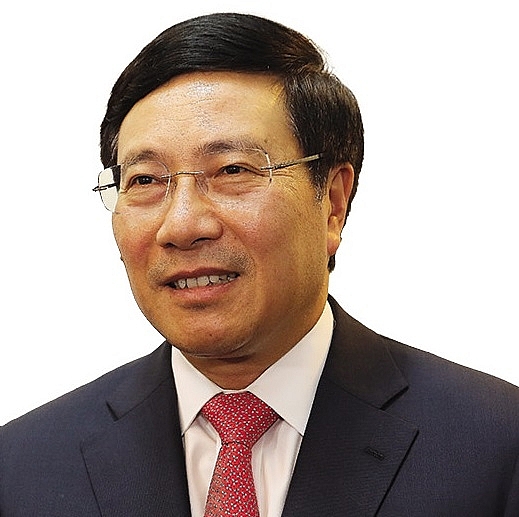 |
Exactly 20 years ago, in November 1998, Vietnam was honoured to become a member of APEC. This strategic decision is a major step taken by our country to implement the foreign policy of openness, multilateralisation and diversification of our international relations and economic integration, giving fresh impetus to Vietnam’s reform and international integration. During 20 years of APEC membership, Vietnam has also made great strides on the path of development and integration. Vietnam has transformed itself from one of the poorest in the world into a lower middle income country, with per capita income increasing seven times from $350 to nearly $2,400.
Vietnam today is an active and responsible member of regional and global co-operation mechanisms and an important link in key regional economic integration networks.
Many APEC members have become Vietnam’s top trade and investment partners. Thirteen out of 16 free trade agreements (FTAs) signed or under negotiation by Vietnam are with 17 APEC members.
APEC members make up 85 per cent of our international tourists and are home to 80 per cent of Vietnamese students abroad. This has helped bring Vietnam closer to the world and the world closer to Vietnam.
APEC also provides a platform for Vietnam to take part in bigger and high-level playgrounds such as the World Trade Organization and FTAs, including new generation FTAs. Ministries, agencies, localities and businesses have more opportunities to learn, improve their capabilities, and raise awareness on integration.
Vietnam treasures the strong support and effective co-operation extended by APEC members. Looking back, Vietnam is proud to have been side by side with other members in making active contributions to the APEC family. Vietnam has left its marks on the development of APEC, especially as the host of APEC 2006 and APEC 2017.
This is for the first time that APEC leaders identified a free trade area of the Asia-Pacific as a long term prospect in November 2006, laying a foundation for a strategic vision of regional integration.
This is the commitment made by our leaders in Danang last year to foster free and open trade and investment, and support the multilateral trading system. It helps sustain the momentum of co-operation and integration, and upholds the core values of APEC.
This is APEC action agenda on advancing economic, financial and social inclusion, APEC framework on human resources development in the digital age, to name a few. Especially, this is the decision to establish the APEC Vision Group to launch a process of building the post-2020 Vision.
Allan Wagner, Former Foreign Minister of Peru, chair of APEC Vision Group
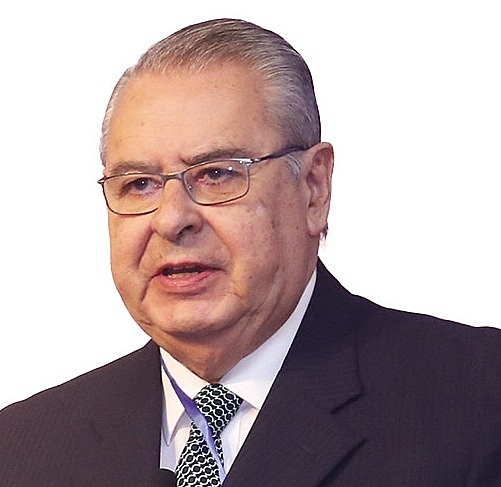 |
On November 18, 1998 in the Kuala Lumpur Summit, Vietnam, Peru, and Russia were accepted as members of APEC. As of 1998, APEC has associated Peru and Vietnam with the most dynamic and innovative economies in the world, and has given them a privileged position on the international stage, facilitating, among other things, the negotiation of strategic association and FTAs with different countries, as well as access to knowledge, skills and good practices.
In 2005, 66 per cent of foreign direct investment to Vietnam came from APEC member economies. The rate in 2016 was 80 per cent. The country’s trade value with the region also increased from 65 per cent to over 80 per cent of total trade value.
Vietnam hosted in 2017 APEC under the theme “Creating New Dynamism, Fostering a Shared Future”. It is important to highlight that the Danang Leader’s Declaration was issued in the middle of great changes and new challenges for international politics and the multilateral economic system. However, Vietnam’s leadership was able to face these challenges and managed to issue a declaration where leaders reaffirmed their longstanding commitment to APEC’s mission of supporting economic growth and prosperity in the Asia Pacific region.
I’m sure that Vietnam will continue to play an important role in APEC’s future as it has done in the past 20 years.
Konstantin Vnukov, Russian Ambassador to Vietnam
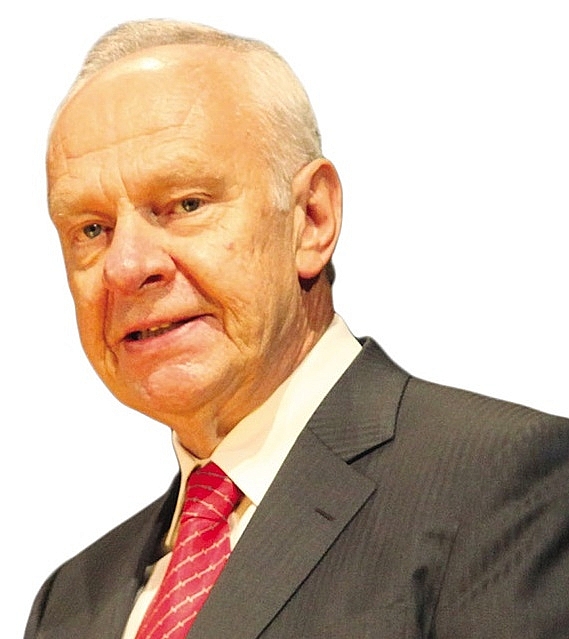 |
I would like to say that Asia-Pacific is a strategic priority for Russia’s foreign policymakers. They are committed to actively promoting peace and stability within the region, expanding their involvement in regional integration for the benefit of sustainable development, and dedicated to the collective struggle against new threats and challenges.
In this context, Russia’s growing interest in APEC is quite natural, as it is a solid platform for discussing various practical issues both bilaterally and multilaterally. Our countries were both accepted to APEC in 1998, and have since amicably co-operated within the forum.
We closely interacted and exchanged experience during the Hanoi and Vladivostok summits in 2006 and 2012, respectively. Our countries are committed to the main principles declared by APEC – open and free trade and reducing protectionism, which is of particular value in the current geopolitical situation.
The priorities proposed by the Vietnamese presidency for APEC 2017 match very closely to ours, including the deepening of regional economic integration; promoting sustainable, innovative, and inclusive growth; boosting competitiveness and ensuring the innovative development of micro-, small-, and medium-sized enterprises in the digital age; and strengthening food security and sustainable agriculture in response to climate change.
Ibnu Hadi , Indonesian Ambassador to Vietnam
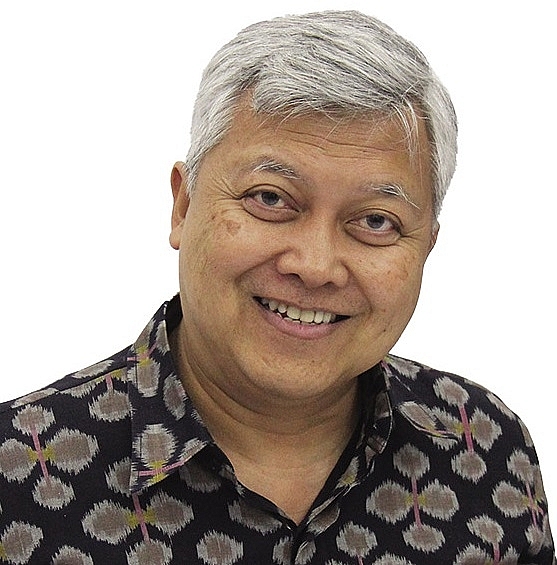 |
Indonesia and Vietnam have been the hosts of many APEC forums, both of which have made important contributions to the development and success of the forum. As one of the first economies to participate in APEC, Indonesia is consistently striving to contribute to the expansion of APEC to become a vibrant global community.
Vietnam has also made significant contributions to building and strengthening the role of the APEC forum in recent years. The progress of APEC has always been a great source of motivation for all the economies, including Indonesia and Vietnam.
In terms of economics, Indonesia and Vietnam have similarities between the demand for production and the demand for consumption. There was strong co-ordination and co-operation in many aspects, enabling the two countries to quickly become partners and join hands in many ways.
Facing the rise of global trade liberalisation, the two sides are aware of the importance of maintaining peace, stability, and security between the two countries in particular and in the region in general. Therefore, Indonesia and Vietnam agreed to co-ordinate and co-operate more closely at regional and international forums, including APEC.
Indonesia will give special privileges to Vietnam in terms of imports-exports and commodity competition between the two countries in order to maintain a lasting economic relationship that has been built and strengthened for a long time.
What the stars mean:
★ Poor ★ ★ Promising ★★★ Good ★★★★ Very good ★★★★★ Exceptional
 Tag:
Tag:
Related Contents
Latest News
More News
- Russian President congratulates Vietnamese Party leader during phone talks (January 25, 2026 | 09:58)
- Worldwide congratulations underscore confidence in Vietnam’s 14th Party Congress (January 23, 2026 | 09:02)
- Political parties, organisations, int’l friends send congratulations to 14th National Party Congress (January 22, 2026 | 09:33)
- 14th National Party Congress: Japanese media highlight Vietnam’s growth targets (January 21, 2026 | 09:46)
- 14th National Party Congress: Driving force for Vietnam to continue renewal, innovation, breakthroughs (January 21, 2026 | 09:42)
- Vietnam remains spiritual support for progressive forces: Colombian party leader (January 21, 2026 | 08:00)
- Int'l media provides large coverage of 14th National Party Congress's first working day (January 20, 2026 | 09:09)
- Vietnamese firms win top honours at ASEAN Digital Awards (January 16, 2026 | 16:45)
- ASEAN Digital Ministers' Meeting opens in Hanoi (January 15, 2026 | 15:33)
- ASEAN economies move up the global chip value chain (December 09, 2025 | 13:32)





















 Mobile Version
Mobile Version